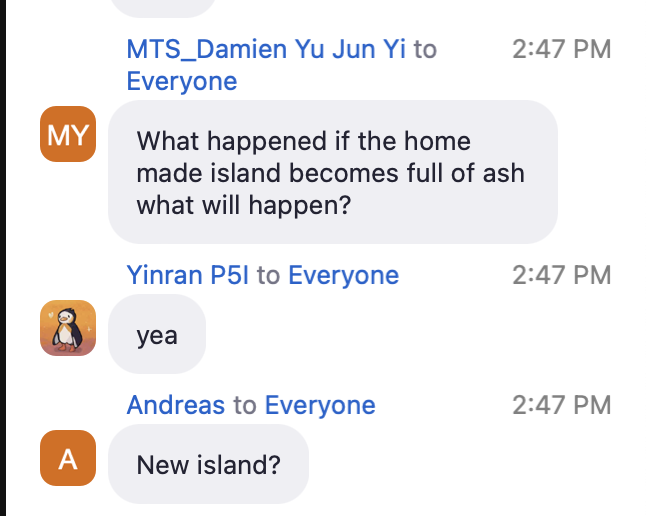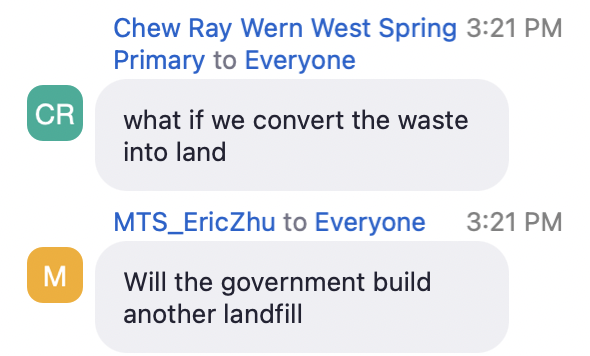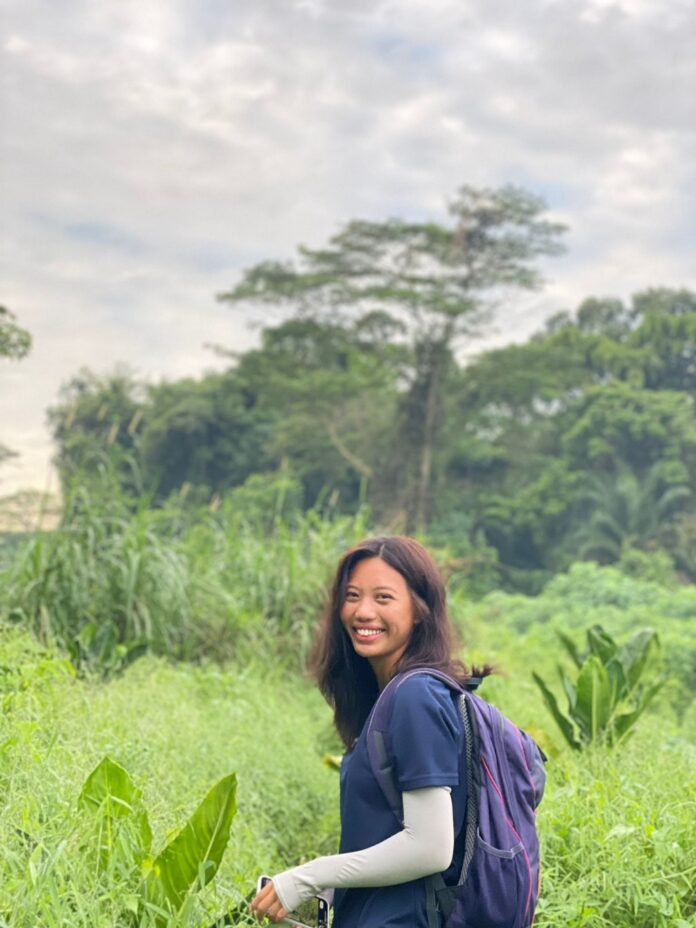Young Social Impact Heroes: Why and How Cassandra Yip of Earth School Singapore Is Helping To Change Our World
There will always be other opportunities. Saying no because you would rather spend that time hanging out with friends or family, or if you’re simply tired is a valid reason. Other times, when a door closes on you, it’s not always a bad thing — that just means you have capacity to do something else now!
As part of my series about young people who are making an important social impact”, I had the pleasure of interviewing Cassandra.
Cassandra started Earth School Singapore to enable more people, especially younger children, to have the opportunity to learn, live and grow a love for nature. Earth School Singapore aims to increase environmental literacy, awareness, and action among children and youth in our local community to enable them to join collective efforts to build a greener and safer tomorrow. As a Bachelor of Environmental Studies undergraduate, Cassandra is motivated to make it my life mission to create sustainable impact for people and planet. Last year, Cassandra participated in the #WeGotThis programme, run by WWF-Singapore and Temasek Foundation. This provided her with more training on how to further her impact and also connected her with others who are making complementary efforts and allow them to support one another. One year later, we invite you to interview Cassandra about the successes of Earth School Singapore to date, how #WeGotThis helped her achieve more, and what’s next.
Thank you so much for doing this with us! Before we dig in, our readers would like to get to know you a bit. Can you tell us a bit about how you grew up?
My parents met while scuba diving, and their love for the ocean and marine life has never wavered a day, not even after they had my sister and I. In fact, they would often bring us on their dive trips and my mum would always tell the story about how they would move baby me the same way they moved air tanks, and that the captain of the boat would very kindly keep an eye on me while my parents were diving. Also, as we were growing up, we often played by the beach, visiting aquariums all over the world and doing all kinds of water sports. So naturally, the ocean has always been my second home and I’ve always wanted to protect it from all the pollution and degradation…and that’s how I became an environmentalist!
You are currently leading an organization that aims to make a social impact. Can you tell us a bit about what you and your organization are trying to change in our world today?
I started Earth School Singapore so that more people, especially younger children, could have opportunities as I had to learn, live, and develop a love for nature.
Earth School Singapore aims to increase environmental literacy, awareness, and action among children and young people in our local community, enabling them to join our collective efforts to build a greener tomorrow. Despite the fact that younger generations face the most climate-uncertain future in history, there is still a long way to go in terms of integrating environmental knowledge into mainstream education. I believe that ensuring exposure at an early age to the natural world and its beauty, as well as the environmental issues that threaten it, is vital in order for us to nurture a new generation of environmentally-conscious individuals who will carry us into the future.
Q3. Can you tell us the backstory about what inspired you to originally feel passionate about this cause?
Since I was a child, I have had a passion for marine life. Growing up as the daughter of two scuba diving instructors, I always wanted to become a Marine Biologist, but in school, I always felt that nature-based careers were not as accessible or encouraged as, say, becoming a doctor or a lawyer.
I would have loved to have learned more about the environment as a child, and probably would have started my path as an environmentalist at a much earlier age had this been the case. Through Earth School, I am hoping to create opportunities for children to pursue more environmental-related dreams and to think about how they can contribute to building a more sustainable future.
Many of us have ideas, dreams, and passions, but never manifest it. They don’t get up and just do it. But you did. Was there an “Aha Moment” that made you decide that you were actually going to step up and do it? What was that final trigger?
I actually started Earth School during our first Covid-19 Circuit Breaker. When I was at home, I had a lot of time to think about what I was passionate about. I have always been inspired by the environmental work that many other environmentalists and their organisations like Young Sustainable Impact Southeast Asia and Jane Goodall Institute were doing, and I just wanted to play my part in championing environmental conservation too. I also always loved interacting with children, and there was my lived experience too — so naturally, that’s how the idea of building a school for environmental education came about.
Many young people don’t know the steps to take to start a new organization. But you did. What are some of the things or steps you took to get your project started?
Earth School is where we are now thanks to the incredible support of many, many other organisations and personal champions for sustainability. One of the more helpful things that has helped grow Earth School’s impact was taking part in #WeGotThis. Developed by WWF-Singapore and Temasek Foundation, #WeGotThis is a global youth sustainability incubator programme that equips youths with the skills, knowledge, and tools on sustainability, innovation and digital advocacy so that they can build a sustainability following, reach out to peers and the larger community, and drive change via their own social media platforms.
Can you share the most interesting story that happened to you since you began leading your company or organization?
The most interesting thing that has happened so far is our Student Heroes in Environmental Leadership Development, otherwise known as SHIELD, programme that we ran for over 50 primary school students.
In particular, we were teaching a lesson on Sustainable Development Goal 11 — Sustainable Cities and Communities and we had these students ask us:


I think this was one of the most memorable moments for us, being able to provide a platform for our young Singaporeans to start thinking about the issue of our waste.
Can you share a story about the funniest mistake you made when you were first starting? Can you tell us what lesson or take away you learned from that?
A big mistake I made when I first started was believing that I could do everything myself from scratch ….including setting up a website. I’ve learned that I may have many strengths like identifying different crab species, but being tech-savvy is not one of them. I probably have the worst tech-fingers. Anyway, I managed to get a tech genius friend Yi Jia to build the beautiful earthschool.sg website that you see hosts our open-access library and other pages! While I’m so grateful to have a friend who could help with this, I also decided it would be beneficial for me to start attending more courses and workshops like the #WeGotThis programme, where I could learn skills that haven’t been taught in school!
None of us can be successful without some help along the way. Did you have mentors or cheerleaders who helped you to succeed? Can you tell us a story about their influence?
One of my amazing friends who helps me run Earth School is Sheryl Chan. She is our Head of School Programmes and also my classmate in the Bachelors of Environmental Studies programme at the National University of Singapore. She is one of our founding directors and her passion for environmental education and her heart for the work we do championing that at Earth School always inspires me. She always wanted to be a teacher, and I hope that Earth School allows her to live that dream. Earth School wouldn’t be where we are now without her.
Can you tell us a story about a particular individual who was impacted or helped by your cause?
Last year, Earth School organised a guided nature tour of the Changi Intertidal zone. We brought some kids with us to learn more about the intertidal ecosystem and have a first-hand experience coming face to face with some of our local marine biodiversity. We saw crabs, sea cucumbers, anemones and many more! One of the boys that joined us has down syndrome, and was incredible excited to see all this wildlife. A defining moment for us would be when he saw a hermit crab and pointed to it, identified it, and told us what we had been repeating the entire trip: ‘see, no touch!’ It was an amazing trip.
Are there three things the community/society/politicians can do to help you address the root of the problem you are trying to solve?
I think if we, as citizens, all slowed down for a moment, to appreciate the beauty of the natural world around us; to take a moment to make more conscious and meaningful decisions (e.g. Do I really need to buy this shirt? Do I really need to eat so much meat?), we would all be healthier, happier and humanistic. This is the concept of degrowth.
What are your “5 things I wish someone told me when I first started” and why. Please share a story or example for each.
- Trust the process, but more importantly, trust yourself. If you believe strongly in the cause you are championing and your heart is in the right place, things will fall into place. Either that, or you’ll find a new way to pivot your initiative and make it work.
- Ask and you shall receive.
- Do not rush growth. The idea of start-ups having to hustle 25/7 and seeing exponential growth is a stereotype. I think the beauty of running your own thing is that you get to decide the pace that works best for you AND your team. Value good work over fast work.
- Let go of perfectionism, people matter more.
- There will always be other opportunities. Saying no because you would rather spend that time hanging out with friends or family, or if you’re simply tired is a valid reason. Other times, when a door closes on you, it’s not always a bad thing — that just means you have capacity to do something else now!
If you could tell other young people one thing about why they should consider making a positive impact on our environment or society, like you, what would you tell them?
I think we live in an incredibly complex, hyper-everything (hyper-productive, hyper-consumption), over-glamourised, material world. And I think many of us now are searching for a deeper meaning in life, what is our purpose in this world, what brings us authentic happiness? So while we might not be able to influence the outcome of a war, or prevent a financial downturn, we can still make the world a better place by living more sustainably. It’s our own small, personal contribution to leaving our planet with enough resources for future generations to live on. That’s our purpose — to make a positive difference in this world. It definitely also helps to surround yourself with a community of people who are striving to achieve the same goals as you — from Earth School to workshops like #WeGotThis, simply witnessing the same passion for sustainability in my fellow youths has been incredibly encouraging.
Is there a person in the world, or in the US with whom you would like to have a private breakfast or lunch with, and why? He or she might just see this, especially if we tag them. 🙂
Jane Goodall. The most incredible, awe-inspiring, and kind-hearted human being there is. On the bad days when my eco-anxiety eats me up, I always turn to her Hopecast, and it makes me believe again that we can save our Earth.
How can our readers follow you online?
- LinkedIn: https://www.linkedin.com/company/earth-school-singapore/
- Instagram: https://www.instagram.com/earthschoolsg/
This was very meaningful, thank you so much. We wish you only continued success in your great work!
Young Social Impact Heroes: Why and How Cassandra Yip of Earth School Singapore Is Helping To… was originally published in Authority Magazine on Medium, where people are continuing the conversation by highlighting and responding to this story.


